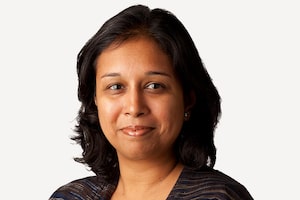
A Japanese classroom with desk and tables and blakckboard is taken from low angle.recep-bg/The Globe and Mail
Ontario's French-language public school districts are calling on the provincial government to document the number of non-Catholics enrolling in francophone separate schools and enforce consistent admission requirements.
"Why does an education system created to protect the Catholic faith accept students who do not adhere to this religion?" the Association des conseils scolaires des écoles publiques de l'Ontario (ACÉPO) asked in a news release on Wednesday.
ACÉPO's statements come in response to a Globe and Mail analysis this week that revealed that in some English Catholic school boards, more than a quarter of elementary-school students and their parents or guardians did not have a baptismal certificate. The province's three largest boards, in the Greater Toronto Area, stand alone among 29 Catholic boards as the only ones with policies that deny enrolment to students without a baptismal certificate.
The analysis of the school districts that provided full data for the past four academic years showed Catholic boards had a gradual increase, year over year, in students who were non-Catholic, or of an unknown religious identity, attending their schools. The number of non-Catholic students reached almost 11,000 last year, an 18-per-cent increase in the past four years, according to figures obtained through Freedom of Information requests.
The Globe did not request information from the province's French-language Catholic school districts. But Denis Chartrand, ACÉPO chair, said on Wednesday that his association was aware of schools, especially in Toronto and Ottawa, that admit a number of non-Catholics.
He said that he informally raised the issue with the Ministry of Education several times, but was told that the province, along with Saskatchewan and Alberta, still constitutionally require funding for Catholic schools. (Newfoundland and Labrador and Quebec obtained constitutional amendments to replace their faith-based school boards with linguistic, secular ones in the 1990s.)
"The demographics of our province are changing and its population is becoming more diverse," ACÉPO said in its release. "If the trend is to welcome students, regardless of their belief, in Catholic schools, it is time to revisit our education system for more equity."
Jean Lemay, chair of the Association franco-ontarienne des conseils scolaires catholiques (AFOCSC), said the criteria of admitting elementary students is strict: they have to appear before an admission committee; families have to change their property tax designations; and students have to agree to take part in religious activities and classes at the school. Asked if French-language schools have many non-Catholics, he responded: "Not really."
At a news conference on Wednesday, Premier Kathleen Wynne did not directly address the rise of non-Catholics attending Catholic elementary schools and said boards have the ability to determine their own admission policies. (Catholic high schools have had to admit all students since the province began funding them in the late 1980s, but elementary schools can still turn non-Catholics away.)
She also said that school boards should not be spending millions in public money to lure students.
Charles Pascal, a former Ontario deputy education minister and a professor at the Ontario Institute for Studies in Education at the University of Toronto, said that recruitment efforts by boards using public money "is simply the latest reason why the time is well past for ending public support for privately held religious beliefs."
He added: "It is far more than saving money, it is about the nature of a society with diverse faiths. … Whatever one's beliefs, it makes no public-policy sense in 2018 to continue providing public dollars to fund schools based on one religion. Hopefully, a government will come along to have the courage to follow Quebec and Newfoundland."
 Caroline Alphonso
Caroline Alphonso